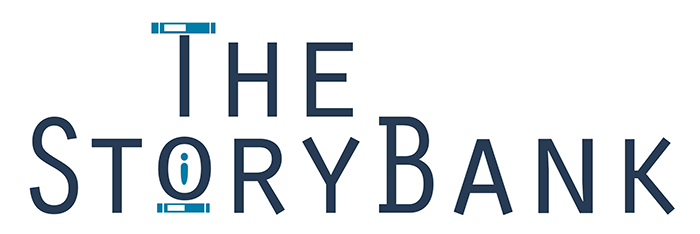
by Adwoa | May 2, 2024 | Consumer Goods
We had recently hired an intern on the team and were having a discussion about her performance. The director in the room was conservative, heterosexual and of Middle Eastern decent. The intern being talked about was Caucasian, liberal, and a lesbian. When I use the term “conservative” and “liberal”, I use it in the literal sense and not the political sense. The director dismissed some of the intern’s accomplishments. The team was unsure why. Specifically the accomplishment where the intern lead a successful LGBTQ event, which was one of its first at the company. The director then said, “well I don’t understand what she… or he… uh I don’t know what <name> is interested in”. This one sentence is etched into my brain because it was illuminating in pointing out that the director did not understand the term, “lesbian” and nor did she want to. She was oblivious to her intern’s demographic orientation and therefore dismissed her accomplishments simply because it was irrelevant to her orientation. Bias at its finest.
Ask questions. As simple as that. We can all have our conclusions and do not need to change ourselves to suit others. But asking questions allows me to open my mind to the different ways in which people live and think. It makes me more open minded at the least.
I saw the director in a different light. I realized that she makes decisions based on deeply held biases towards certain demographics. It was shame to see. I now try to ask questions to seek to understand where someone is coming from, especially if their actions are confusing to me.

by Adwoa | May 2, 2024 | Consumer Goods
My female director was quite liberal in how she shows up (self declared). In fact, one time she assessed me as a “prude” because I did not think conversations about sexual escapades should be had in the office or with coworkers (especially those who report into you or you report into). Over the course of 4 years, she has slapped my butt jokingly, commented about other married men openly saying that she’d be “DTF”, taken her team out for drinks and opened up about affairs in the office, and also openly exclaimed to a male coworker “if you weren’t married, I’d kiss you right now” after he gave her good news about a business win. Her behaviours would be grounds for harassment if she was male. But she would downplay them as silly and non-offensive because she’s a female. Her senior colleagues also did not see her behaviours as harmful.
I was vocal about the experiences I’ve had with her when I left the company. I also make sure to address issues like this immediately as it happens. Addressing it later can stir up confusion, change of facts, denial and so on. Empowering others to open up and train them to have agency is a big focus of mine.
I naturally became closed off around her, and sometimes disgusted at how this was happening openly and no one thought it was shocking. All behaviour no matter who it comes from, but especially when it comes from those of authority need to be addressed immediately. It made me feel like we had no power, even with our own bodies and personal stories.

by Adwoa | Jan 28, 2024 | Hardware & Networking
I was working at large enterprise IT as the only female on the team. I was the newest and youngest member of the team. I formed great friendships with everyone and everyone was nice enough to lend a helping hand whenever I had any questions. One day my manager, who was also female , called me in for a meeting. She informed me that there were some rumours questioning if I was in a relationship with one of my close colleagues (who was older than me and married with children). I was FURIOUS and deeply hurt. I asked if these rumours were from people on our team or from others in the company. I had assumed that because I had such a good relationship with everyone on our team they knew my character and knew there was obviously nothing happening apart from a good friendship. My manager wouldn’t tell me where the rumours were coming from but gave me a life lesson about how as a female in a male dominant industry, I will always be an easy target. She gave me an example of herself and said she goes out for runs with a male person on our team as they’ve been friends for years, but she doesn’t advertise it because she knows it will lead to assumptions. She said, like me , our open and cheerful personalities…which enabled the both of us to form close friendships and win people over, is also the same reason people will point to us and interpret it as “flirtatious” behaviour, which has apparently happened to her in her career as well.
Needless to say I definitely dialed back my personality and started distancing myself more from team members as I didn’t know who I could trust anymore. I found it more difficult to interact with the team and enjoy my time spent around the office.

by Adwoa | Jan 28, 2024 | Featured, Software & IT Services
This was pretty much my first real corporate job after graduating university. I joined a large enterprise IT company and started off in a supporting sales role. The company realized in most other departments they didn’t have much of a contingency plan as all their employees were from the same generation and approaching retirement at the same time. A role opened up on a technical support customer facing team to which I applied and got the role. I am from a visible minority and I’m female. My manager was also female , but the rest of the team has been all male for over a decade, most of whom were about 15-20 years older than me and had been working for the company for several years . As with many large corporations, company layoffs occurred often. During one of those times, a male coworker who was 20 years older said that I was safe because I’m female, young and a visible minority.
This made me feel both deeply upset and angry because I read it as “I’m employed because I check diversity boxes” not because the company sees value in my work or that i’m actually qualified. Needless to say I spoke to my manager at the time and she said yes you were hired because you’re female and you were hired because you were the best person for the role. As a younger employee, I was very eager to learn and establish a career for myself, hearing that comment from the more experienced team members made me question my abilities and value and did strip away some of the confidence I had which landed me the job in the first place.

by Adwoa | Jan 17, 2024 | Finance
I was moving from our national office to a regional office assignment (developmental, two years) and was getting to know the executive team there, who I would be supporting. One of the executives knew me from my previous role. In speaking with him, he asked how my relocation was proceeding. Not thinking anything of it, I told him I had found something and was getting ready to take possession. He queried about the “taking possession” comment and asked, “Oh, you BOUGHT something?” (emphasis is original, and it was and continues to be a hot real estate market). I said yes, and he bellowed, “Well, that’s excellent – congratulations!” He followed that question up with another, which was, “And congratulations on that, too – I didn’t know that you got married!! That’s so great that you got married. When did you get married?” (spoiler:
I hadn’t).
I have always been attuned to inherent (and certainly explicit) bias, and I also have felt it first hand. While working on taking more agency for myself along the way, what this experience taught me is the importance of not being complicit as a bystander when this happens to others, as that is what keeps these systems of bias and discrimination viable, if not flourishing. I regularly speak up in selection committees or succession planning sessions to name biases (not in front of the candidate unless absolutely necessary), and I mentor young professionals in the importance of professional advocacy for themselves and others. To the good or not, the story has some humour (hopefully when I tell it!) and it also sticks and gets people talking which is part of our way out of this.
You know, it was funny (although mostly it wasn’t), but what sits underneath a statement and perspective like this is not. As many would say, this exec was “a good guy,” but I think that is the thing that gets in the way of him changing (or others motivating him to change). People didn’t (and maybe still don’t) see the problematic mindset he had. He was gregarious and well-liked, and, in my case, I believe he was genuine in his congratulations, and that his good wishes were from his heart. I think the impact this experience had on me was forever recognizing how deeply rooted biases are. We like to believe discriminatory beliefs and biases are only held by “bad” people or that they can be trained out quickly and from the surface, but it really does run deep and it’s often a full-on transformation (and not just learning or unlearning) that needs to take place for change.





